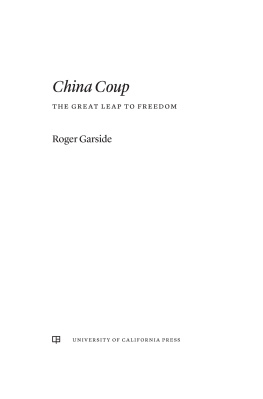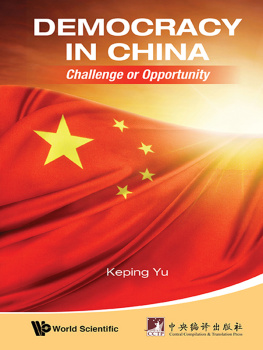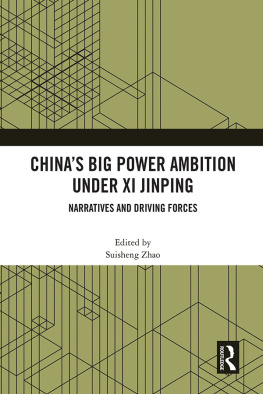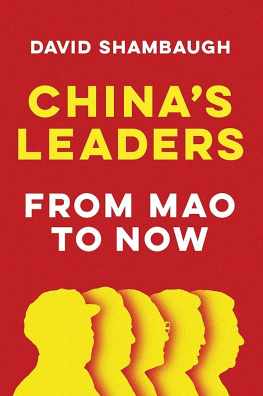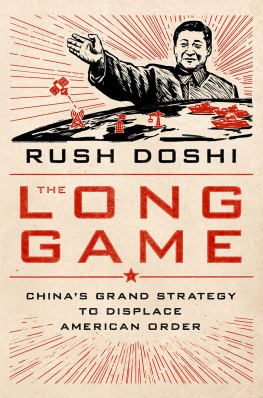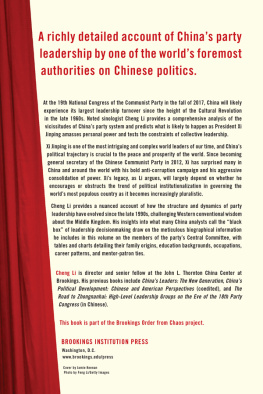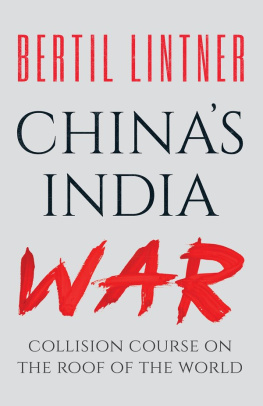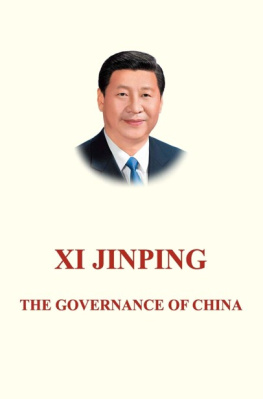Preface
Before the next National Congress of the Communist Party of China, due in November 2022, President Xi Jinping will be removed from office by a coup dtat mounted by rivals in the top leadership who will end the tyranny of the one-party dictatorship and launch a transition to democracy and the rule of law.
The main body of this book, Part 2, explains why it will happen. Parts 1 and 3 tell how it may happen; they are semi-fictionalthe people named are real, while the storyline is fiction.
Revolution has always seemed impossible until it occurred, after which everyone sagely agreed that it was inevitable, wrote one expert on the Soviet Union before its collapse.
Two decades after its collapse, Leon Aron, director of Russian studies at the American Enterprise Institute, commented: In the years leading up to 1991, virtually no Western expert, scholar, official, or politician foresaw the impending collapse of the Soviet Union, and with it one-party dictatorship, the state-owned economy, and the Kremlins control over its domestic and Eastern European empires. Neither, with one exception, did Soviet dissidents nor, judging by their memoirs, did the future revolutionaries themselves.
The future I predict depends on men and women in China, the United States, and its liberal, democratic allies displaying courage and wisdom. These qualities have been in short supply in recent years, except in places like Hong Kong and Taiwan, but there is good reason to believe they are not extinct.
We cannot know the future of China with certainty any more than we can know the future of other countries. Since the manuscript of this book has been completed, there have been major developments in Chinas policy towards international financial markets and institutions that have changed the context for the story that I tell in Part 1. They will have far-reaching consequences for China domestically and internationally, but they have reinforced my view of the underlying realities which that story is designed to illustrate.
While we cannot know the future of China with certainty, we can use our knowledge and our judgment to identify its most likely trajectory in broad terms. My career at the front line of political and economic change has embraced diplomacy, development banking, university teaching, and the development of capital markets in countries making the transition from a command economy to a market economy. (A full account is in the afterword.) The interaction between economics, finance, and politics I have witnessed has led me to the view of Chinas future that I offer in this book.
1
The Coup
Li Keqiang, Chinas premier and second-ranking member of its Communist Party, stares in horror at the Reuters Chinese-language feed on his computer screen. He is reading a press release by the US Securities and Exchange Commission (SEC) announcing the imminent suspension of trading on all US exchanges of the securities issued by five of the Chinese companies with the highest capital valuations in the American markets. The reason given is that the SEC lacks confidence in the veracity of the financial information those companies supply to investors. The suspension will last from 9:30 a.m. Eastern Standard Time on Monday, 28 March, to 11:59 p.m. EST on Friday, 8 April.
Since the first China-registered company was admitted to listing on the New York Stock Exchange in 1992, nearly two hundred more have been listed on major US exchanges, raising tens of billions of dollars each year. For investors, a US listing carries with it the assumption that US rules and regulatory oversight apply, but when it comes to Chinese companies, that simply is not true. Beijing routinely blocks the efforts of the US Public Company Accounting Oversight Board (PCAOB) to gain access to the accounts of these companies held in China and the right to inspect their assets, so that it can verify the information they supply. Chinese law requires that financial records remain in China, and Beijing restricts access to accounting information, citing national security and state secrecy.
The US Congress has long been indignant that Chinese companies should be permitted to access the US capital markets, and apparently mislead American investors, while obstructing the legitimate demands of the SEC. The indignation is all the greater because US competitors of these companies have been subjected to discrimination or outright bans in China.
When US President Barack Obama urged President Xi Jinping to change Chinese law to allow disclosure, he refused and used a joint press conference with the US president to make clear how strongly he resented the pressure. On this issue, he has overridden the advice of Li and others, because he believes that China is now strong enough to defy attempts by the United States to influence Chinese law making.
Li has no illusions about Chinese financial and reporting standards. The scandals are legendary. He remembers the case of Sino Forest, which overstated the value of its forests in Yunnan by US$900 million, and Luckin Coffee, whose share price lost $5.5 billion when it was revealed that 40 percent of its sales had been fabricated in one quarter. Over the years, US regulators have acted against Chinese companies for problems of financial information, and dozens have been delisted, but never companies of such size as those now suspended for noncompliance, whose total capitalization is well over one trillion US dollars. They have been out of compliance for three years, so their time is up.
Li is all too aware that three weeks ago an international consortium of news media, consisting of the New York Times, the Asahi Shimbun in Tokyo, The Guardian in London, and the Sddeutsche Zeitung in Munich, featured front-page reports based on leaked documents that show that the accounts of two of the five, ChinaPay and JieChu, contained material inaccuracies. These companies are both leaders in Chinas financial services. They are highly innovative and have achieved phenomenal growth for a decade by financing Chinas private sector corporate borrowers, which are ill served by the state-owned banks, and depositors, who are denied a proper rate of return by those banks. They harness fintech brilliantly, but have engaged in shadow banking, taking risks they have concealed from the financial regulators, except for those whose complicity they have bought with large bribes. Naturally, the companies have denied the accusations just published, denouncing the documents as forgeries. The SEC has responded by saying that if they will grant the PCAOB full access to their books, the truth or falsehood of the allegations can be established.

